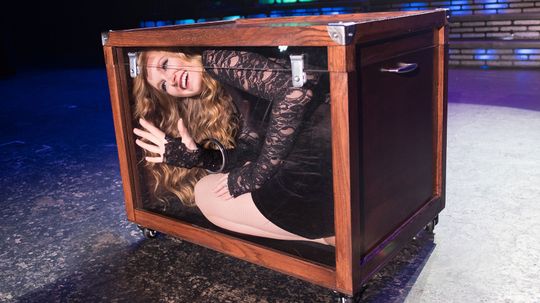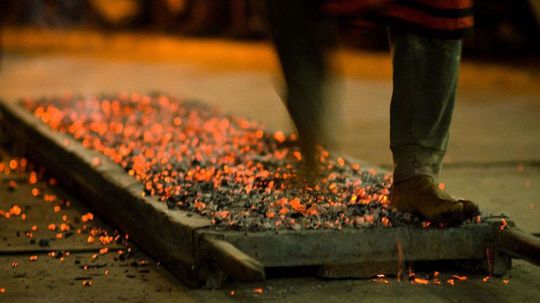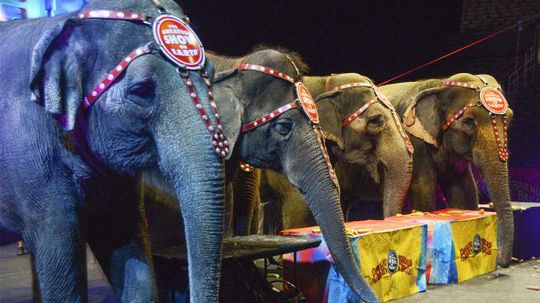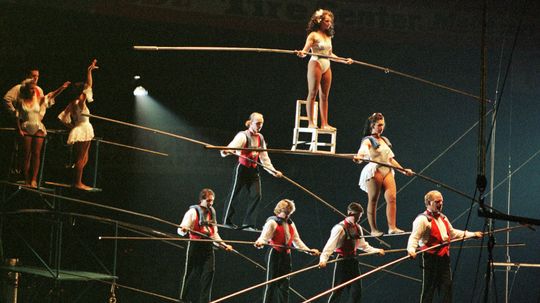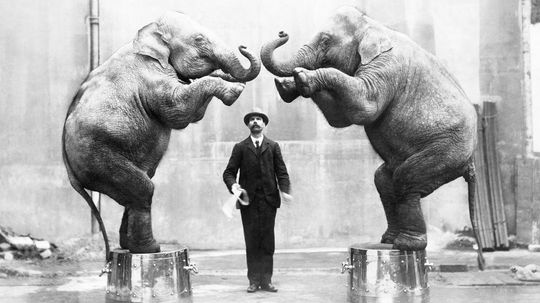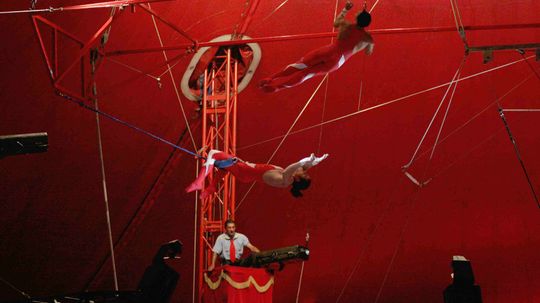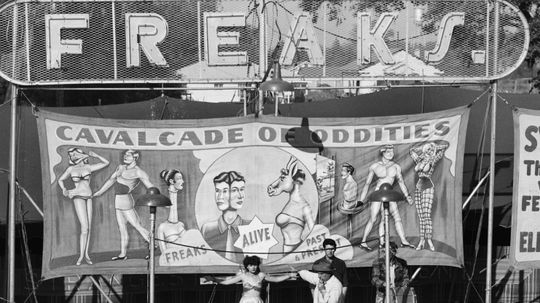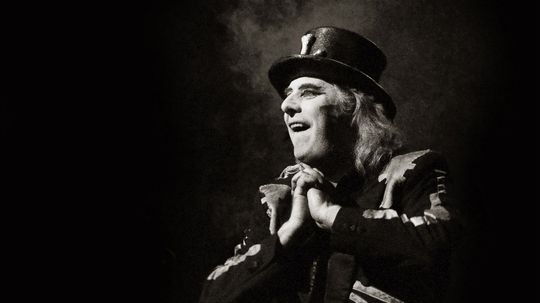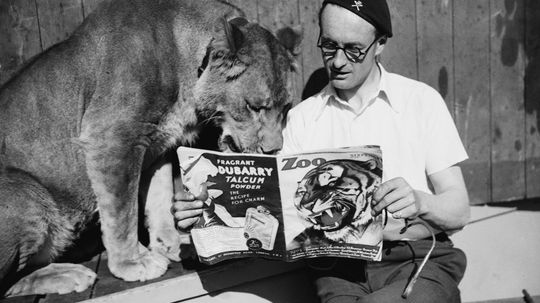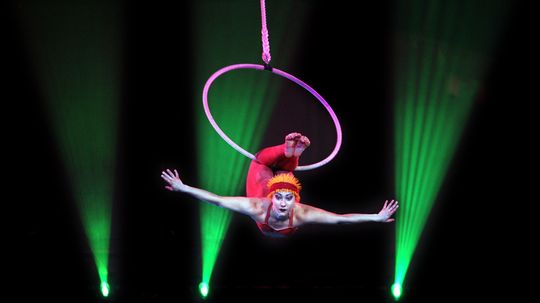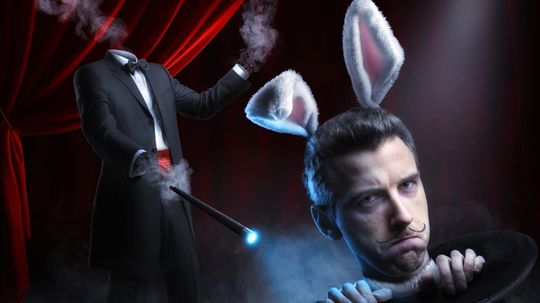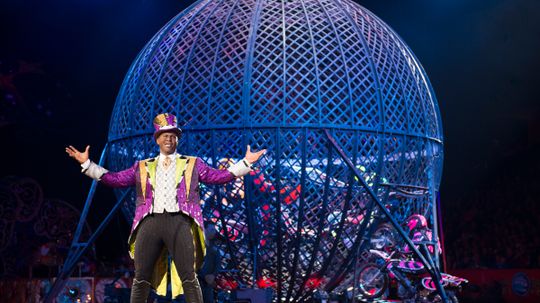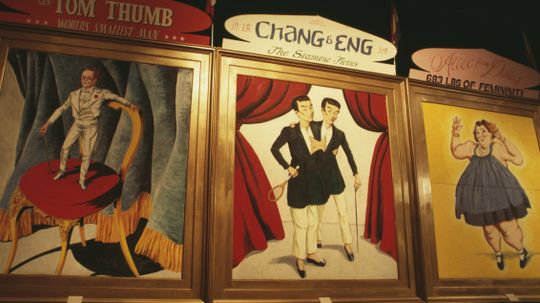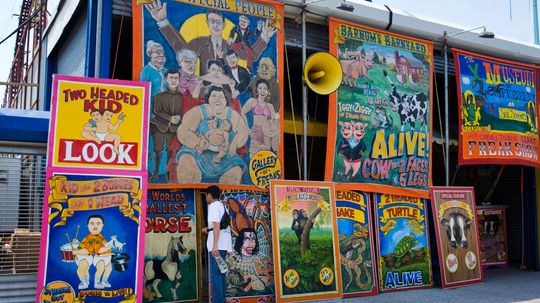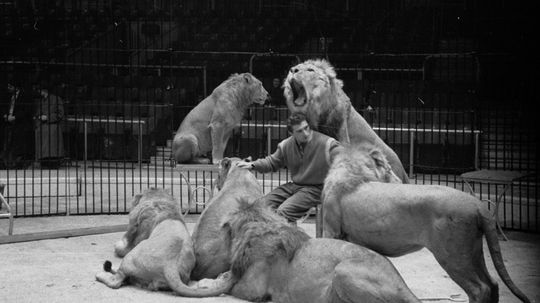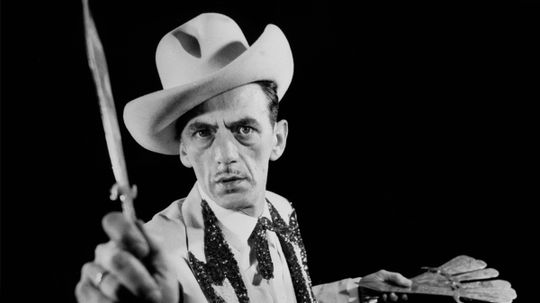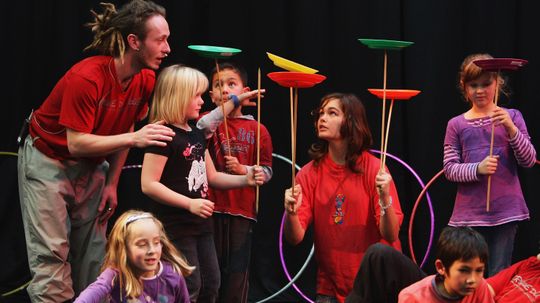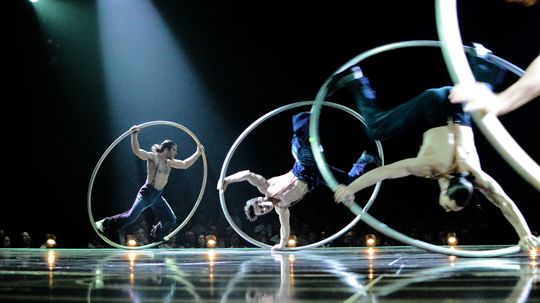Circus Arts
From sideshow secrets to incredible stunts, learn about the magic behind circus arts.

7 Types of Art to Find in Museums, on the Street and Beyond

6 Tertiary Colors in Graphic Design, Fashion and Decor

How to Use Neutral Colors for Sophisticated, Understated Looks

10 Most Powerful DC Characters: A Highly Subjective List

The Most Powerful Marvel Character: 15 Strong Contenders

7 Manga Websites With Quality Options (Both Free and Paid)

The Scariest Books of All Time Prey on Your Insecurities

5 Types of Conflict That Make Things Interesting (For Better or Worse)

What Is Personification? All About a Common Literary Device
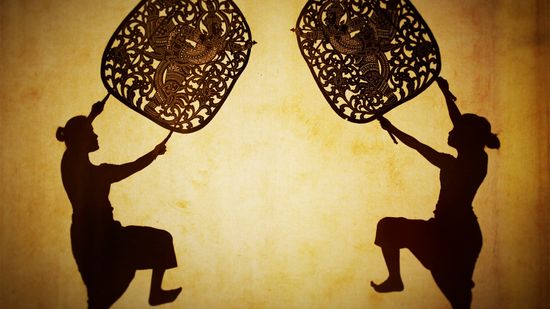
The Magical Art of Cambodian Shadow Puppetry Has Entertained for Centuries
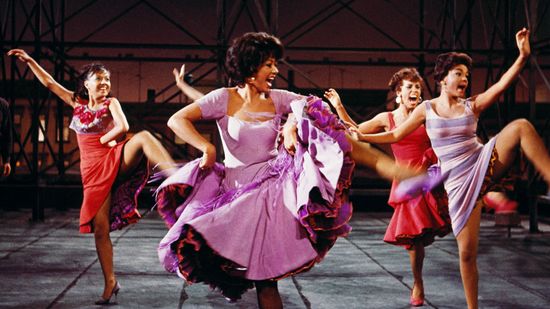
10 Groundbreaking Broadway Musicals

A High-stepping History of the Rockettes
Learn More
Although many people think the magician's assistant is just there for her looks, she (it's usually a "she") is often the brains behind the illusion.
By Dave Roos
Looking to turn your fear into power and walk across hot coals? The BrainStuff crew fills you in on the fiery science behind the feat.
All 11 of the circus's touring elephants are headed for a Florida retirement in May.
By Julia Layton
Advertisement
The circus can provide great fun and entertainment, but occasionally serious tragedies occur under the big top. These disasters were nothing short of catastrophic.
Circuses are largely about the awesome animals, but have you ever thought deeper about their history within the industry?
Circus acts may seem effortless, but that's because lot goes on behind the scenes to ensure the performers' safety. These precautions help make the circus as magical and wondrous as ever.
The idea of a "traditional" circus may seem weird, but over the years we've certainly seen innovation within the industry. Not all circuses rely on clowns and elephants to keep their offbeat audiences intrigued.
Advertisement
The circus is an institution steeped in a tradition of stunning feats and amazing animals. While some circus acts have fallen by the wayside, these are in the ring for the long haul.
Some sideshow performers were such a hit that they became regular celebrities. These five entertainers used their conditions to their advantage and reached sideshow superstardom.
In the sideshows of yore, people with rare medical conditions took to the stage to display their bodies to ogling spectators. Their disabilities were touted as amazing "oddities," but what's the real science behind the show?
We're a lot more respectful of disabilities and medical conditions nowadays, but once upon a time they were much more widely exploited for entertainment and profit. Check out these 10 bizarre circus sideshows!
Advertisement
Yes, the circus gets weirder than clowns cramming in tiny cars and aerialists hanging by their hair. Delve into the bizarre history of the Big Top.
Thought circus acts couldn't get more daring than fire-breathing? Guess again. Death-defying stunts are all in a day's work for some circus performers.
Magic's about making the impossible possible, but for these magicians the impossible remained out of reach - sometimes with deadly results.
Daredevils testing the laws of physics and the outer limits of bikes and bodies. That's what the Globe of Death act is all about. It's a breathtaking performance, no doubt; but how do they do that?
Advertisement
There's nothing quite like the circus, is there? The exotic animals, death-defying stunts and funny clowns have entertained folks for generations. But how did modern circuses get started? You have to go back to the 1700s.
Seems like the circus has been around forever. The circus doesn't date that far back, but many troupes operating today started in the 19th century. So which is the longest-running one? It depends on whom you ask.
Freak shows aren't part of the circus culture now, but for generations they were one of the main draws. So just how and when did circuses start displaying such curiosities?
Circuses haven't changed too much through the generations, but one thing you'll be hard pressed to find now is a freak show. Yet, they were once an integral part of the circus experience.
Advertisement
Let's just go ahead and say it: yes, knife-throwing is very dangerous. But there are strategies that a knife-thrower uses to keep an act as safe as possible.
Working in some circus jobs is not for the faint-hearted. Tightrope walkers, lion tamers or human cannonballs all face death every day. Read on to find out which is the most dangerous job.
Imagine jumping from four stories up and landing in a kiddie pool. Some brave souls make a living performing this crazy feat over and over. How do they survive that kind of punishment?
You might not be whipping knives at the wheel of death by the time you finish reading this article, but you'll be on your way. Ready to learn about this awesome pastime?
Advertisement
You may eat off them every day, but some performers prefer to entertain with their plates. Where did plate spinning start, and what are the physics involved?
The spotlight goes up on a man, alone except for a large aluminum ring that he grips with one hand. With perfect timing, he steps in, out and around the spinning and wobbling ring in a well-choreographed dance. How does he do it?
By Dave Roos
